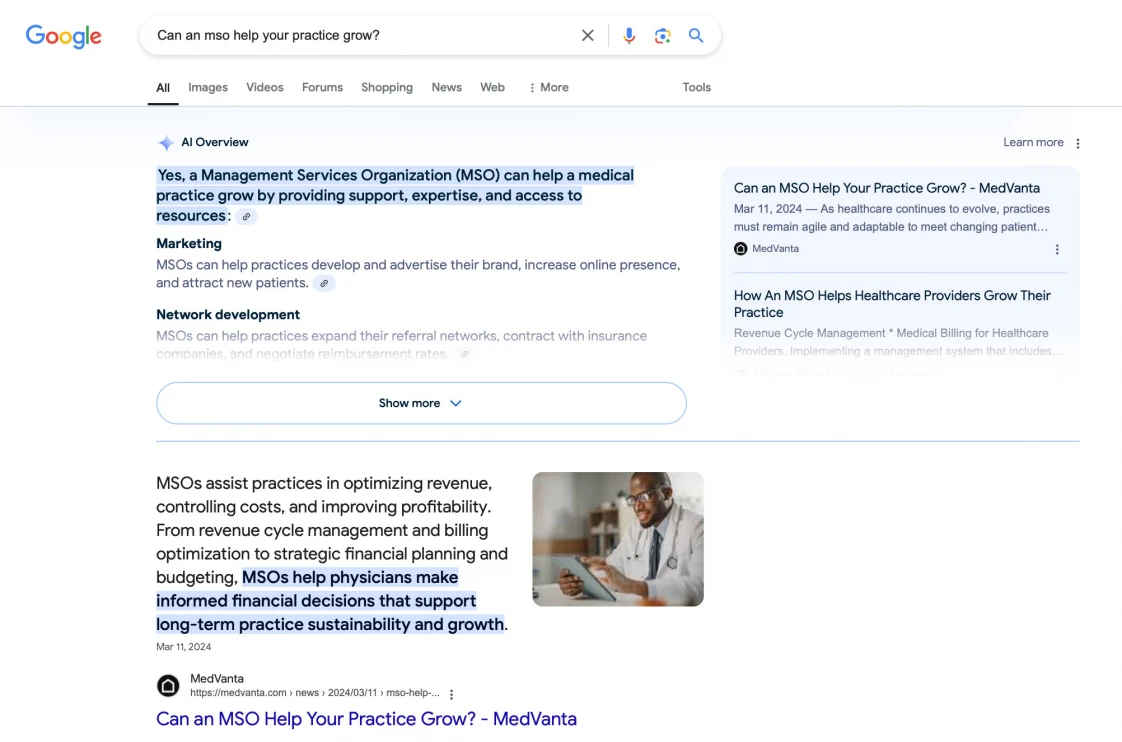These days, it seems like you can't read a news article without some mention of AI (artificial intelligence). Many tech companies have already added AI features into their products and services. One of the primary ways AI is being integrated into marketing and advertising tools is by using generative AI chatbots. Two of the most popular chatbots are OpenAI's ChatGPT and Google's Gemini. Initially released in November 2022, ChatGPT acquired 100 million active uses in only two months. Since then, other leading tech companies including Meta, Microsoft, and Apple have integrated AI into their products and services. Let's take a closer look at how AI can be used to help your medical practice's marketing initiatives.

What is a generative AI chatbot?
In general terms, a generative AI chatbot is a type of advanced software that uses large language models to take part in natural-sounding conversations. You can ask a chatbot a question, and they can understand complex queries, maintain context, generate creative content, and learn from interactions. This new technology has the potential to drastically enhance various industries by providing personalized experiences, automating tasks, and unlocking new creative possibilities.
Google Gemini is an example of a generative AI chatbot. This year, Google added AI Overviews to the SERP (search engine results page). Here's an example of how Google uses content from Medvanta.com in a SERP:

How can AI enhance healthcare marketing?
Even though AI technology is relatively new, it can be very helpful for marketing and communications. Here are a few ways to use AI in your medical practice.
1. Digital Advertising
Digital advertising can include paid search, display, and video pre-roll. Google, Microsoft, Meta, and various other social media and video streaming services all offer ad platforms that allow you to pay for placement. This type of advertising isn't new. In fact, Google's ad platform was initially released in 2000. However, in recent years, AI has been steadily integrated into these ad platforms. AI helps ad performance in many ways, including personalization, ad placement, audience targeting, dynamic pricing, and predictive analytics.
2. Customer Service
Your practice's front desk staff is the first impression your patients get when calling or coming in for an appointment. But what happens when a patient calls and the staff is busy or the office is closed? Most practices use a recorded message and prompt to leave a message. However, there are now a variety of services offering AI phone agents and virtual receptionists. These AI agents have realistic voices, understand human speech, and can be set up to answer a wide-range of questions.
What about customer service on your website? Many medical practices are now utilizing chatbot software that offers 24/7 support to patients. A patient can click the “chat” icon on your site and instantly start a conversation with an AI support rep. This type of software is only as good as the information added to its database. However, chatbots are great for answering common questions. And if there's a question that's outside the scope of the chatbot's dataset, then the patient can use a contact form to get in touch with a real staff member.
3. Content Generation
One of the most useful aspects of a generative AI chatbot is its ability to create content, including text, images, and even videos. For example, you can ask ChatGPT to write articles, blog posts, video scripts, and social media posts. Of course, results vary, and some of the content is very general. For medical practices, it's imperative to ensure all content generated by a chatbot is accurate before using it in any marketing material.
If you have an established practice, then you might already have a robust catalog of brochures, articles, and blog posts. ChatGPT allows you to repurpose your existing content so it's useful in new formats. For example, what if you could quickly and easily create a series of 1-minute video scripts from an existing blog post? No problem! Just copy and paste your blog post into ChatGPT and ask it to create five different 1-minute video scripts. There are even services that use AI to create videos from these scripts. Keep in mind, AI isn't perfect. A knowledgable marketing professional will need to edit and adjust any AI-generated content so it's accurate and appropriate for your target audience.
4. Office Communication
The largest software companies in the world are promoting their AI services. Microsoft's Copilot promises to streamline business processes. Google Workplace offers an always-on AI assistant. You can use these AI tools to help complete many business tasks such as composing email and creating a wide variety of documents. In a recent American Medical Association survey, nearly two-thirds of the responding physicians said they see advantages of using AI.
Is now a good time to start using AI tools and services in your medical practice?
Integrating any new technology into your practice is a decision you need to take seriously. The conservative approach is to tread lightly and look for case studies of how AI is helping other practices before you take the plunge. There are definitely ways to take baby steps in order to test the waters. Talk to your business partners, staff, and patients. If AI allows you and your team to provide better patient care, then it's certainly something to consider. The experts at MedVanta are here to help. Contact us to learn more.